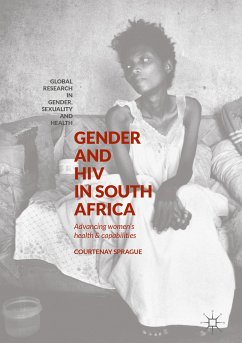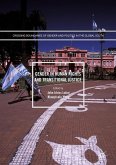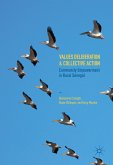This book addresses the ongoing problem of HIV in black South African women as a health inequity. Importantly, it argues that this urgent problem of justice is changeable. Sprague uses the capabilities approach to bring a theory of health justice, together with multiple sources of evidence, to investigate the complex problem of HIV and accompanying poor health outcomes in black South African women. Motivated by a concern for application of knowledge, this work discusses how to better conceptualise what health justice demands of state and society, and how to mobilise available evidence on health inequities in ways that compel greater state action to address problems of gender and health.
HIV in women, and possible responses, are investigated on four distinct levels: conceptual, social structure, health systems, and law. The analysis demonstrates that this problem is indeed modifiable with long-term interventions and an enhanced state response targeted at multiple levels. This book will be of interest to academics and students in the social health sciences, gender and development studies, and global health, as well as HIV/health activists, government officials, policy makers, HIV clinicians and health providers interested in HIV.
Dieser Download kann aus rechtlichen Gründen nur mit Rechnungsadresse in A, B, BG, CY, CZ, D, DK, EW, E, FIN, F, GR, HR, H, IRL, I, LT, L, LR, M, NL, PL, P, R, S, SLO, SK ausgeliefert werden.
"Gender and HIV in South Africa is an ambitious and important book, written meticulously and with great empathy. ... it presents an excellent overview for those who seek to understand Black women's vulnerability to HIV, offering the kind of information and context (historical, political,
and legal) that is particularly useful for actors such as NGOs and policymakers working at the intersection of health and gender justice." (Kathleen Rice, Gender & Development, Vol. 27 (3), 2019)
"The study's multi-method approach and the engagement with key questions, drawing on a diverse range of knowledge sources-including pairing of large, quantitative datasets with empirical and original qualitative research-are particular strengths of the book. ... Sprague invites researchers to extend themselves, to draw on the richness of interdisciplinary and transdisciplinary dialogue in researching the complex landscape of HIV and gender." (Tamara Shefer, The Lancet, Vol. 19 (2), February, 2019)
"This work is groundbreaking and urges the reader to reflect on the structural links between gender inequalities, HIV, health, and social justice. Readers cannot avoid re-thinking how they approach these issues. ... This book should be read by everyone in the fields of justice, health equity, gender, and HIV. ... it should be read by all health practitioners and policymakers because it challenges us to reflect on health care, women's capabilities to realize health, and health equity." (Samantha Willan, African Journal of AIDS Research, Vol. 17 (3),2018)
and legal) that is particularly useful for actors such as NGOs and policymakers working at the intersection of health and gender justice." (Kathleen Rice, Gender & Development, Vol. 27 (3), 2019)
"The study's multi-method approach and the engagement with key questions, drawing on a diverse range of knowledge sources-including pairing of large, quantitative datasets with empirical and original qualitative research-are particular strengths of the book. ... Sprague invites researchers to extend themselves, to draw on the richness of interdisciplinary and transdisciplinary dialogue in researching the complex landscape of HIV and gender." (Tamara Shefer, The Lancet, Vol. 19 (2), February, 2019)
"This work is groundbreaking and urges the reader to reflect on the structural links between gender inequalities, HIV, health, and social justice. Readers cannot avoid re-thinking how they approach these issues. ... This book should be read by everyone in the fields of justice, health equity, gender, and HIV. ... it should be read by all health practitioners and policymakers because it challenges us to reflect on health care, women's capabilities to realize health, and health equity." (Samantha Willan, African Journal of AIDS Research, Vol. 17 (3),2018)
Es gelten unsere Allgemeinen Geschäftsbedingungen: www.buecher.de/agb
Impressum
www.buecher.de ist ein Internetauftritt der buecher.de internetstores GmbH
Geschäftsführung: Monica Sawhney | Roland Kölbl | Günter Hilger
Sitz der Gesellschaft: Batheyer Straße 115 - 117, 58099 Hagen
Postanschrift: Bürgermeister-Wegele-Str. 12, 86167 Augsburg
Amtsgericht Hagen HRB 13257
Steuernummer: 321/5800/1497
USt-IdNr: DE450055826
Bitte wählen Sie Ihr Anliegen aus.
Rechnungen
Retourenschein anfordern
Bestellstatus
Storno









